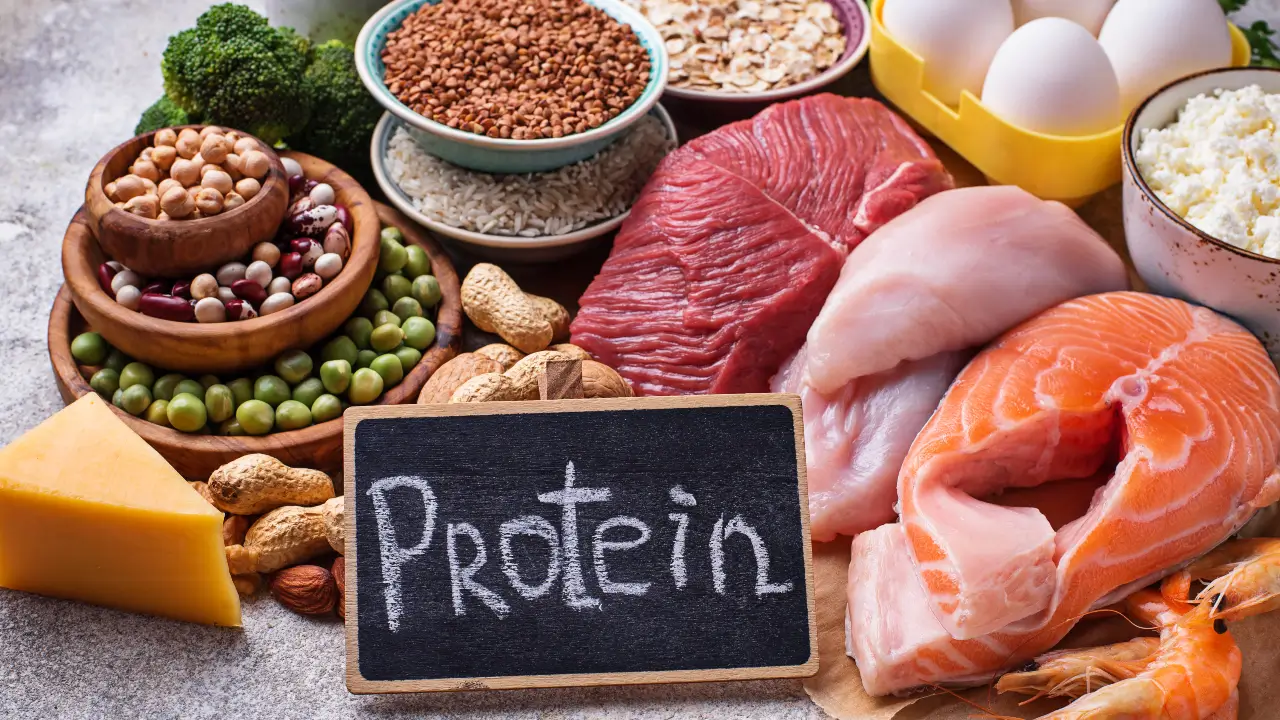Protein is an important macronutrient that plays a fundamental role in maintaining the overall health and wellness of our body. It has functions such as building and repairing tissues, supporting intestinal health and providing an energy source and many more. Therefore, regardless of whether your goal is to maintain a healthy lifestyle or improve your performance as an athlete, it is extremely important to pay attention to your daily protein intake.
Functions of Protein:
Muscle Development and Repair: Protein plays a major role in repairing and building muscle tissue, which is especially important for athletes and anyone who engages in regular physical activity.
Enzyme Production: Enzymes are essential for various chemical reactions in the body, and many of them consist of proteins.
Hormone Regulation: Protein supports the production and regulation of various hormones such as insulin and growth hormones.
Immune Function: Antibodies, vital components of the immune system, are produced from proteins.
Skin, Hair and Nails Health: These structural components of the body are largely nourished by protein.
Cellular Structure: Proteins are essential for maintaining the structural integrity of cells.
Now let’s get to the heart of the matter: How much protein should we consume daily for our health? The Recommended Dietary Allowance (RDA) for protein is a general guideline provided by health authorities. According to the Dietary Reference Intake (DRI), the RDA for protein is approximately 0.8 grams of protein per kilogram of body weight for adults. This means about 56 grams per day for a sedentary man and an average of 46 grams per day for a sedentary woman. However, these are general guidelines and individual protein requirements may vary depending on various factors such as age, gender, or activity level.
Age: Young individuals need more protein to support their development and growth, while older adults may need less.
Activity Level: Your activity level, including the type and intensity of exercise you do, can significantly affect your protein needs. The recommended daily protein intake for those leading a sedentary lifestyle is approximately 0.8 grams of protein per kilogram of body weight. This means that if you weigh 70 kilograms, you should aim for around 56 grams of protein per day. Physically active individuals may need 1.2 to 2.2 grams of protein per kilogram of body weight. Athletes in particular may need protein intake at the higher end of this range to support muscle growth and recovery.
Muscle Mass: People with a higher percentage of lean muscle mass generally need more protein to maintain and build their muscles. This is especially true for bodybuilders and strength athletes.
Health Goals: Your health and fitness goals also play a very important role in your daily protein requirement. If you’re looking to lose weight, protein can help you feel full and preserve lean muscle mass. If you are trying to gain muscle, you may also need a high protein intake.
Special Diets: Some medical conditions or dietary preferences can affect your protein needs. For example, vegetarians and vegans need to make sure they get enough protein from plant-based sources such as beans, lentils, tofu and quinoa; for example, Muscle Cheff’s vegan Protein Chips that are produced with pea protein, can be a good option to get protein support in a delicious way.
In summary, the ideal daily protein intake depends on several factors, such as your age, activity level, muscle mass, and health goals. Remember that the quality of protein you consume is as important as the quantity; so prioritize nutrient-rich sources for best results. With Muscle Cheff Hazelnut & Cocoa Protein Spread for instance, you can support your daily macro and micro intake by getting healthy fat, vitamin and mineral support from its 11% hazelnut content in addition to %24 protein content.

